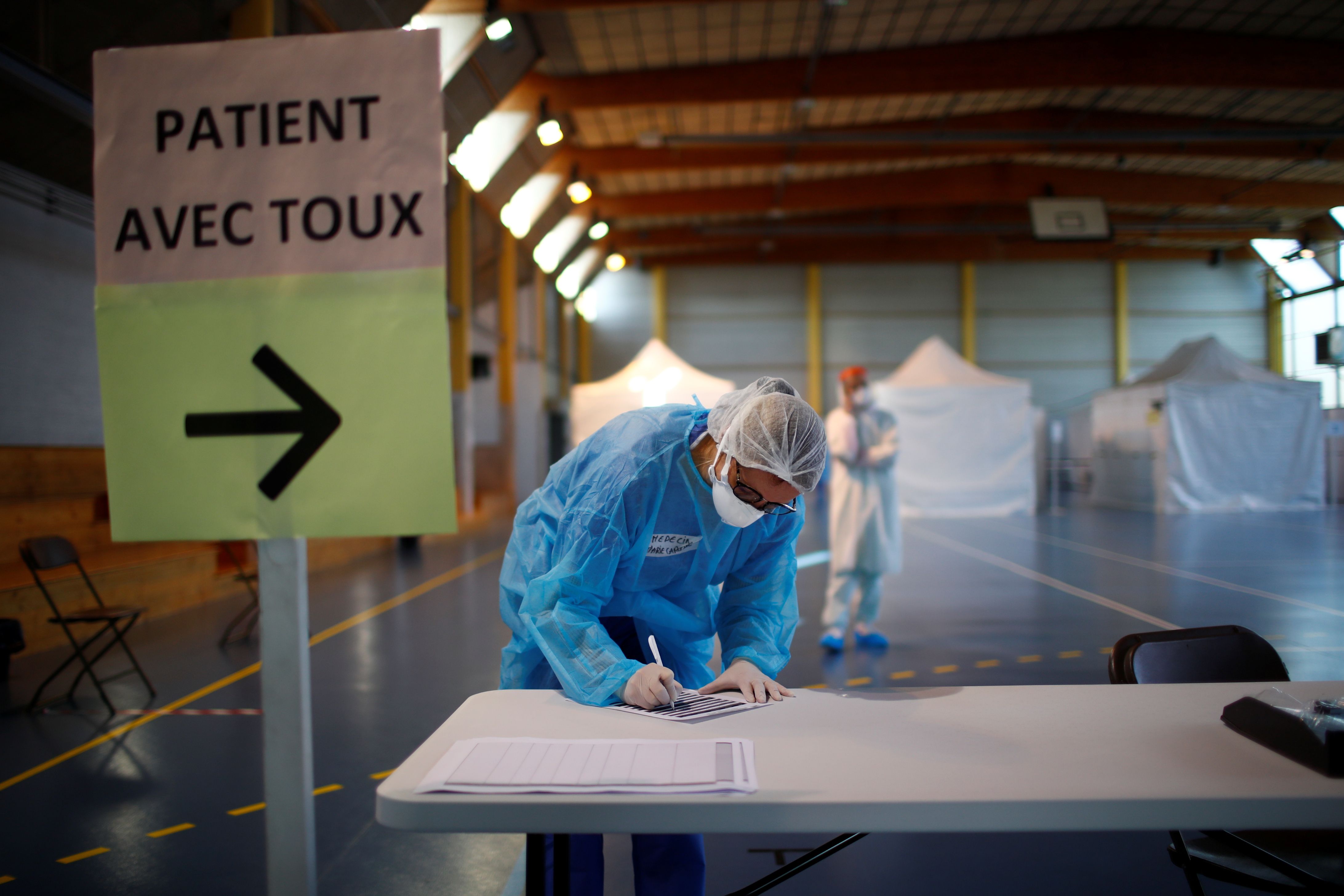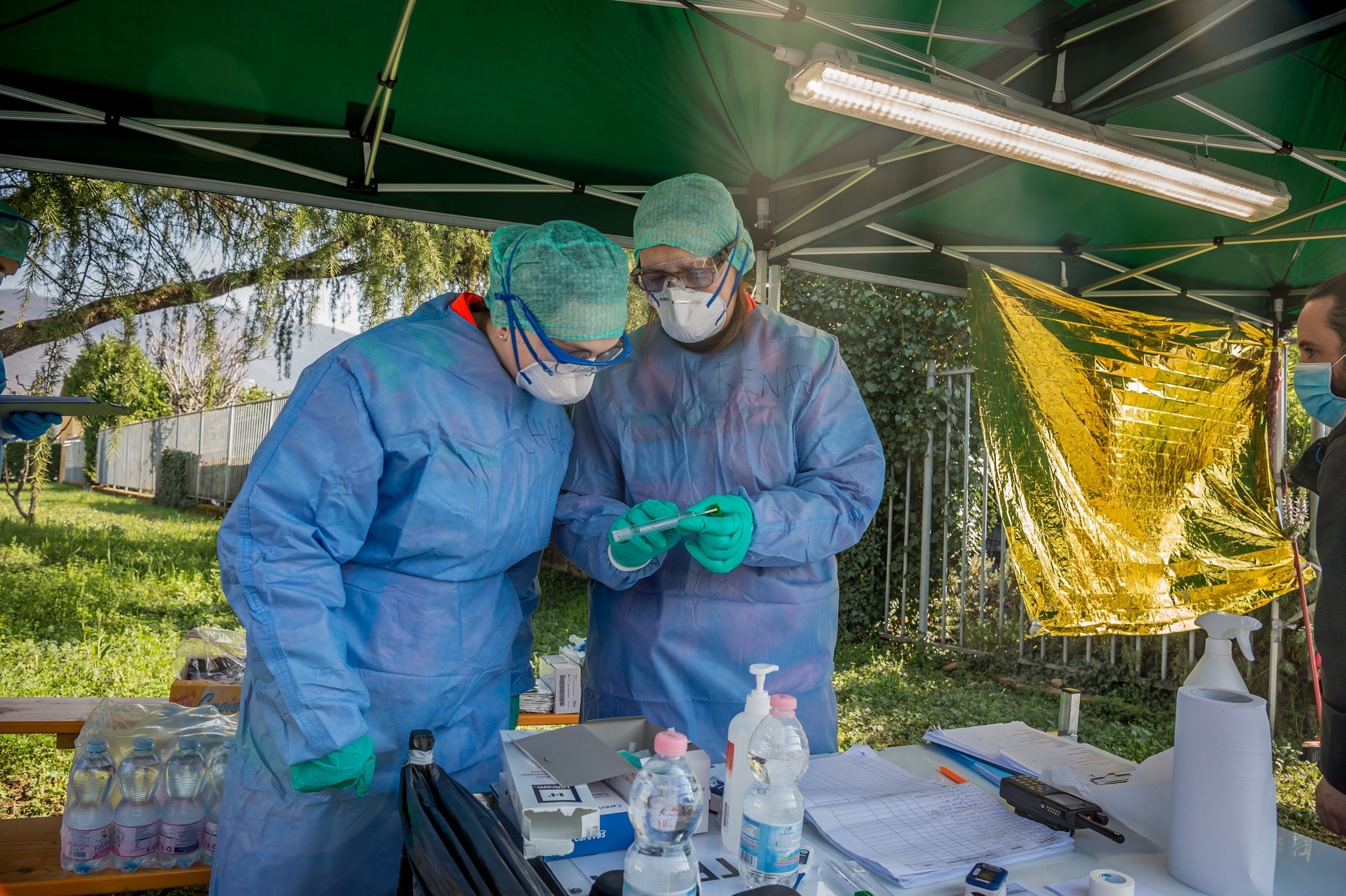France and COVID-19: Economic Priorities and the Risk of Recession

The strict lockdown ordered by President Emmanuel Macron, effective from 17 March, will have a serious impact on the French economy. If the isolation continues for one month, it will probably cause a recession of 1% in 2020 (according to HCFP’s estimates). Along with the restrictions on movement, an anti-crisis package has been presented. Its priorities are to maintain production and prevent rising unemployment “at any price”. Budget discipline and debt reduction will be put aside. Facing this unexpected crisis, France is returning to interventionist policies and more significant state engagement with the economy.
Flexible Reactions
Bruno Le Maire, the minister of the economy and finance, announced that the costs of the French anti-crisis plan are now difficult to estimate. Its first stage is a direct intervention of €45 billion. Part of this sum will cover the payment of 84% of net salaries to all employees grounded during the pandemic. Currently, 1.6 million people at 150,000 enterprises are affected by this measure. The authorities also announced the suspension of fiscal and social charges for March. A direct tax reduction will be allowed in individual cases. A special fund of €1 billion per month has been created to help small businesses in the service sector. Macron also promised to refund travel and hotel expenses for medical personnel. In addition, the state has made guarantees that companies forced to renegotiate their credit with banks can count on a public warranty which jointly amounts to €300 billion. The state investment bank Pbifrance has opened a credit line for companies at risk of bankruptcy.
Taking account of these measures, Le Maire announced that further deficit and public debt reductions, established in accordance with EU Stability Pact assumptions, are no longer possible. The HCFP foresees a deficit of 3.9% in 2020 (comparing to the 2.2% estimated before the crisis), and public debt surpassing 100% of GDP (compared to 98.8% in 2019, before the pandemic, and the 98.7% previously estimated for 2020). France will probably reiterate its criticism of EU fiscal rules, harshened after the crisis of 2008 to 2009. Macron may even demand that they are abolished or modified permanently, not only in the face of the current risk of economic collapse and increased public funding. This distrust of investors will be limited as the stability of the eurozone as a whole is now supported by the ECB, which decided to purchase the bonds of the Monetary Union members. Furthermore, the EC has already validated the French anti-crisis plan.
Focus on Industrial Policy
Even before the pandemic reached France, it had exposed the country’s economic vulnerability to external shocks. The losses suffered by French businesses to the end of February, as a result of the crisis in East Asia and the rupture of delivery chains, amounted to about €1 billion. The automotive industry has been hit particularly hard. The Peugeot group has been forced to temporarily close 15 factories in France, Spain, Germany, Poland, the UK, Portugal and Slovakia. Renault has stopped work at its 12 facilities in France, making 18,000 employees reliant on state assistance. Equally dependent on foreign deliveries is the pharma industry (100,000 employees and annual exports worth €25 billion). About 50% of active substances in medical products are imported from China and other states of the region. For this reason, the French pharma group Sanofi announced in February plans to construct the world’s second biggest active substances plant in Europe.
In light of these facts, Macron urged a rethink of the current model of global economy based on dispersed chains of co-operators. In a speech of 16 March, he announced state assistance for those companies which will make an effort to repatriate their production. Le Maire also encouraged French companies to analyse their dependence on deliveries from China.
The government will also try to save strategic companies. The Air France-KLM group, one of the main passenger air carriers in Europe, estimates its losses to date at €200 million. It cannot be excluded that the government will grant public aid to this company, taking advantage of the increased tolerance of the EC. Moreover, the authorities do not rule out nationalisation of some crucial companies, especially those that will suffer because of recession. France has a long tradition of using such crises as opportunities to increase the role of the state in the economy. The last wave of nationalisation took place at the beginning of the 1980s, and concerned mainly the banking sector and the heavy industry.
On a visit to Institut Pasteur on 19 March, Macron announced €5 billion of increased spending on research during the coming 10 years. The French government is often accused of insufficient science funding. French laboratories were working on coronavirus projects after the SARS epidemic in 2003. However, the majority of projects were suspended because of financial cuts. In Mulhouse, the French city most affected by COVID‑19, Macron promised “deep and sustainable” investments on healthcare.
Conclusions and Prospects
Macron’s reaction to the crisis can change the perception of his policies among his fellow countrymen. Whereas in Europe he is often perceived as a defender of the social welfare state and protectionist policies, the French accuse him of promoting laissez-faire attitudes and globalisation. The pandemic has already hindered the introduction of the most controversial social reforms which, in recent months, caused the “yellow vest” protests. It is unknown whether such disputed moves such as pension reform will return after the crisis (Prime Minister Édouard Philippe is still supporting them). Uncertainty about future economic policy could cause an exodus of significant personalities from France’s ruling party. The efficacy of the French anti-crisis package will depend on the persistence of the pandemic and lockdown measures. The recession predicted by the end of this year won’t improve the mood of French society, but the uniting effect caused by disaster could temporarily improve Macron’s rating. The last polls show his popularity increasing by 13 points, and for the first time in two years it exceeds 50%.
The context of the pandemic only encourages Macron to promote his vision of EU reforms. He may say that the lack of a serious eurozone budget, promoted by France, was behind Brussels’ failure to react appropriately to the emergency, making the EU dependent on the good will of Member States. He might also reiterate his earlier proposals for common civil protection. France may therefore insist on a bigger eurozone budget and increased investment effort. A common industrial policy aimed at decreasing dependence on foreign (especially Chinese) co-operators could also be included in the French plan. Although the government will surely try to base production to France, Poland and other Central European states are potentially attractive locations for French investment, partly because of a workforce trained to in the automotive and pharma industries. However, France may precondition common European measures in this area on deepening social cohesion and the introduction of a common minimum wage.




